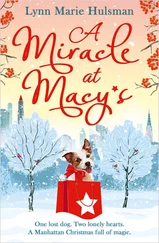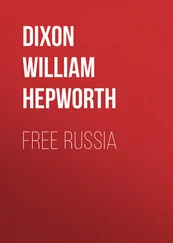Nikolai Nekrasov - Who Can Be Happy and Free in Russia?
Здесь есть возможность читать онлайн «Nikolai Nekrasov - Who Can Be Happy and Free in Russia?» весь текст электронной книги совершенно бесплатно (целиком полную версию без сокращений). В некоторых случаях можно слушать аудио, скачать через торрент в формате fb2 и присутствует краткое содержание. Год выпуска: 2005, Жанр: Поэзия, на английском языке. Описание произведения, (предисловие) а так же отзывы посетителей доступны на портале библиотеки ЛибКат.
- Название:Who Can Be Happy and Free in Russia?
- Автор:
- Жанр:
- Год:2005
- ISBN:нет данных
- Рейтинг книги:3 / 5. Голосов: 1
-
Избранное:Добавить в избранное
- Отзывы:
-
Ваша оценка:
- 60
- 1
- 2
- 3
- 4
- 5
Who Can Be Happy and Free in Russia?: краткое содержание, описание и аннотация
Предлагаем к чтению аннотацию, описание, краткое содержание или предисловие (зависит от того, что написал сам автор книги «Who Can Be Happy and Free in Russia?»). Если вы не нашли необходимую информацию о книге — напишите в комментариях, мы постараемся отыскать её.
Who Can Be Happy and Free in Russia? — читать онлайн бесплатно полную книгу (весь текст) целиком
Ниже представлен текст книги, разбитый по страницам. Система сохранения места последней прочитанной страницы, позволяет с удобством читать онлайн бесплатно книгу «Who Can Be Happy and Free in Russia?», без необходимости каждый раз заново искать на чём Вы остановились. Поставьте закладку, и сможете в любой момент перейти на страницу, на которой закончили чтение.
Интервал:
Закладка:
His daughters-in-law
At the old Prince's order 460
Are pouring out vodka
To give to the peasants,
Hand cakes to the youths,
To the girls some sweet syrup;
The women drink also
A small glass of vodka.
The old Prince is drinking
And toasting the peasants;
And slyly he pinches
The beautiful ladies. 470
"That's right! That will do him
More good than his physic,"
Says Vlásuchka, watching.
"He drinks by the glassful,
Since long he's lost measure
In revel, or wrath…."
The music comes floating
To them from the Volga,
The girls now already
Are dancing and singing, 480
The old Prince is watching them,
Snapping his fingers.
He wants to be nearer
The girls, and he rises.
His legs will not bear him,
His two sons support him;
And standing between them
He chuckles and whistles,
And stamps with his feet
To the time of the music; 490
The left eye begins
On its own account working,
It turns like a wheel.
"But why aren't you dancing?"
He says to his sons,
And the two pretty ladies.
"Dance! Dance!" They can't help themselves,
There they are dancing!
He laughs at them gaily,
He wishes to show them 500
How things went in his time;
He's shaking and swaying
Like one on the deck
Of a ship in rough weather.
"Sing, Luiba!" he orders.
The golden-haired lady
Does not want to sing,
But the old man will have it.
The lady is singing
A song low and tender, 510
It sounds like the breeze
On a soft summer evening
In velvety grasses
Astray, like spring raindrops
That kiss the young leaves,
And it soothes the Pomyéshchick.
The feeble old man:
He is falling asleep now….
And gently they carry him
Down to the water, 520
And into the boat,
And he lies there, still sleeping.
Above him stands, holding
A big green umbrella,
The faithful old servant,
His other hand guarding
The sleeping Pomyéshchick
From gnats and mosquitoes.
The oarsmen are silent,
The faint-sounding music 530
Can hardly be heard
As the boat moving gently
Glides on through the water….
The peasants stand watching:
The bright yellow hair
Of the beautiful lady
Streams out in the breeze
Like a long golden banner….
"I managed him finely,
The noble Pomyéshchick," 540
Said Klím to the peasants.
"Be God with you, Barin!
Go bragging and scolding,
Don't think for a moment
That we are now free
And your servants no longer,
But die as you lived,
The almighty Pomyéshchick,
To sound of our music,
To songs of your slaves; 550
But only die quickly,
And leave the poor peasants
In peace. And now, brothers,
Come, praise me and thank me!
I've gladdened the commune.
I shook in my shoes there
Before the Pomyéshchick,
For fear I should trip
Or my tongue should betray me;
And worse—I could hardly 560
Speak plain for my laughter!
That eye! How it spins!
And you look at it, thinking:
'But whither, my friend,
Do you hurry so quickly?
On some hasty errand
Of yours, or another's?
Perhaps with a pass
From the Tsar—Little Father,
You carry a message 570
From him.' I was standing
And bursting with laughter!
Well, I am a drunken
And frivolous peasant,
The rats in my corn-loft
Are starving from hunger,
My hut is quite bare,
Yet I call God to witness
That I would not take
Such an office upon me 580
For ten hundred roubles
Unless I were certain
That he was the last,
That I bore with his bluster
To serve my own ends,
Of my own will and pleasure."
Old Vlásuchka sadly
And thoughtfully answers,
"How long, though, how long, though,
Have we—not we only 590
But all Russian peasants—
Endured the Pomyéshchicks?
And not for our pleasure,
For money or fun,
Not for two or three months,
But for life. What has changed, though?
Of what are we bragging?
For still we are peasants."
The peasants, half-tipsy,
Congratulate Klímka. 600
"Hurrah! Let us toss him!"
And now they are placing
Old Widow Teréntevna
Next to her bridegroom,
The little child Jóckoff,
Saluting them gaily.
They're eating and drinking
What's left on the table.
Then romping and jesting
They stay till the evening, 610
And only at nightfall
Return to the village.
And here they are met
By some sobering tidings:
The old Prince is dead.
From the boat he was taken,
They thought him asleep,
But they found he was lifeless.
The second stroke—while
He was sleeping—had fallen! 620
The peasants are sobered,
They look at each other,
And silently cross themselves.
Then they breathe deeply;
And never before
Did the poor squalid village
Called "Ignorant-Duffers,"
Of Volost "Old-Dustmen,"
Draw such an intense
And unanimous breath…. 630
Their pleasure, however,
Was not very lasting,
Because with the death
Of the ancient Pomyéshchick,
The sweet-sounding words
Of his heirs and their bounties
Ceased also. Not even
A pick-me-up after
The yesterday's feast
Did they offer the peasants. 640
And as to the hayfields—
Till now is the law-suit
Proceeding between them,
The heirs and the peasants.
Old Vlásuchka was
By the peasants appointed
To plead in their name,
And he lives now in Moscow.
He went to St. Petersburg too,
But I don't think 650
That much can be done
For the cause of the peasants.
PART III.
THE PEASANT WOMAN
PROLOGUE
"Not only to men
Must we go with our question,
We'll ask of the women,"
The peasants decided.
They asked in the village
"Split-up," but the people
Replied to them shortly,
"Not here will you find one.
But go to the village
'Stripped-Naked'—a woman 10
Lives there who is happy.
She's hardly a woman,
She's more like a cow,
For a woman so healthy,
So smooth and so clever,
Could hardly be found.
You must seek in the village
Matróna Korchágin—
The people there call her
'The Governor's Lady.'" 20
The peasants considered
And went….
Now already
The corn-stalks are rising
Like tall graceful columns,
With gilded heads nodding,
And whispering softly
In gentle low voices.
Интервал:
Закладка:
Похожие книги на «Who Can Be Happy and Free in Russia?»
Представляем Вашему вниманию похожие книги на «Who Can Be Happy and Free in Russia?» списком для выбора. Мы отобрали схожую по названию и смыслу литературу в надежде предоставить читателям больше вариантов отыскать новые, интересные, ещё непрочитанные произведения.
Обсуждение, отзывы о книге «Who Can Be Happy and Free in Russia?» и просто собственные мнения читателей. Оставьте ваши комментарии, напишите, что Вы думаете о произведении, его смысле или главных героях. Укажите что конкретно понравилось, а что нет, и почему Вы так считаете.











